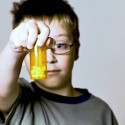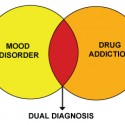Zero tolerance alcohol policy good choice for parents
Restaurants in Germany legally sell alcohol to teenagers after their sixteenth birthdays and French children drink wine with dinner at an early age, but U.S. parents who follow this relaxed European example, believing it fosters a healthier attitude toward alcohol, should be careful — it may increase the likelihood that their children binge drink in college.
Research conducted by Caitlin Abar, graduate student, human development and family studies and member of Penn State’s Prevention Research and Methodology Centers, suggested that parents practice a zero-tolerance policy in the home and said that there is no scientific basis to the common belief that prohibiting alcohol turns it into a “forbidden fruit” and encourages abuse. She presented her results at the 2009 meeting of the Society for Prevention Research, Washington, D.C. and they appear in the current issue of Addictive Behaviors.
In 31 states, parents can legally serve alcohol to their underage children. Though U.S. teenagers drink less often than adults, they tend to drink more at a time — on average, five drinks in a sitting — according to Ralph Hingson of the National Institute on Alcohol Abuse and Alcoholism. About 87 percent of college students try alcohol, and 40 percent say that they regularly engage in some type of high-risk drinking.
To see if parents permitting underage alcohol use might be an underlying cause of binge drinking, Abar surveyed almost 300 college freshmen and related their drinking habits to their parents’ modeling and permissibility of alcohol use. Those students whose parents did not permit them to drink underage — about half of the group — were significantly less likely to drink heavily in college, regardless of gender. In addition, “the greater number of drinks that a parent had set as a limit for the teens, the more often they drank and got drunk in college,” said Abar. Whether the parents themselves drank, on the other hand, appeared to have little effect on predicting their children’s behaviors when accounting for the permissibility they exhibited toward teen alcohol use.
Further research is needed to confirm the preliminary study, said Abar. For one thing, she did not separate students who specifically drank with their parents at meals from those whose parents allowed their children to drink both inside and outside of the house.
A previous study in 2004 by Kristie Foley, Wake Forest University Baptist Medical Center, North Carolina, showed that teenagers who received alcohol from their parents for parties were up to three times more likely to binge drink within a month, while those who drank only with the family were less likely to binge. So the context in which a parent provides alcohol may be key.
The difference also could be due to some other factor, for example, parents who prohibit their children from drinking may simply provide more structure in general.
However, this sample of college students is not necessarily representative of the entire U.S. population, said Alexander Wagenaar, a social epidemiologist, University of Florida, Gainesville, who has charted the effects of raising the drinking age for nearly three decades. The survey group in Abar’s sample was composed almost entirely of white students who lived on campus.
Wagenaar finds the data convincing, though, because previous research uncovered a similar effect in low-income African-American and Hispanic students. A 2007 study of 1,388 children by Kelli Komro, University of Florida, showed that schoolchildren who were permitted alcohol in the home by their parents in sixth grade were up to three times more likely to get drunk and almost twice as likely to drink heavily (five or more drinks) at ages 12-14.
Abar’s coauthors were Beau Abar, graduate student, human development and family studies, and Rob Turrisi, professor of biobehavioral health. The National Institute on Alcohol Abuse and Alcoholism and the National Institute on Drug Abuse supported this work.
source: Penn State Live

